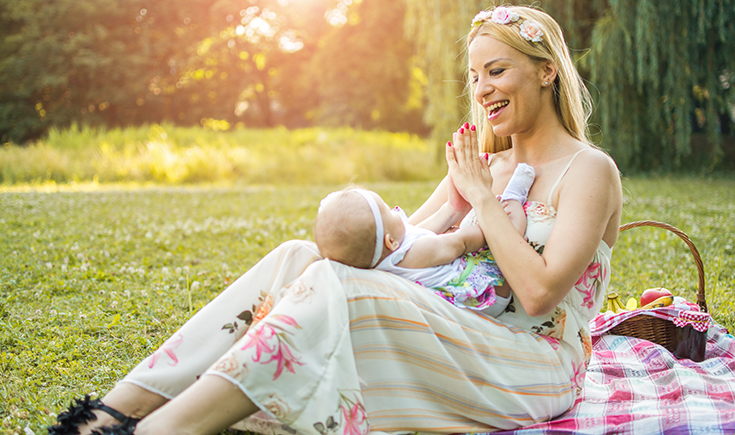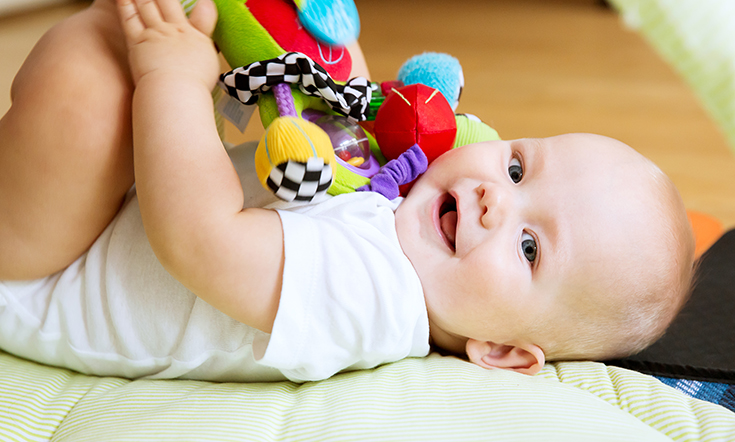

Now that your baby’s more alert, do you feel you need to constantly entertain your precious little bundle? Do they seem bored or frustrated if you’re not singing, chatting, or playing with them?
Babies don’t play the way adults think
You might feel like it’s your job as the parent to show your baby how toys work, to set up sensory activities, to move them from play area to play area with a new array of engaging items.
But, babies don’t play the way we think they do, and they don’t need to be taught how to play. If you observe your baby, you’ll see that even the smallest experience is a learning opportunity for them. Finding their fingers and sucking on them, reaching for an object and eventually grasping it, moving it, and manipulating it are all highly engaging for a baby.
This is the beginning of play. It’s their way of interacting with the big, exciting world around them.
Free play is essential to development
Brain studies conducted by psychologists have proven that while infants are dependent on their caregivers, they’re far from helpless. Your baby is more than capable and competent, so trust that they can establish quality, inner-directed and self-initiated play.
Giving your baby plenty of opportunities in a safe space to play independently without adult intervention is important for their development. There’s so much going on for them when they play: problem solving, gross and fine motor development, and skill mastery through repetitive actions.
Babies need a break as well
While it’s important for your baby to have loving, interactive play experiences with you, it’s necessary for them to have time alone to rest their busy minds and bodies. Being entertained can be exhausting for babies, as they’re trying to absorb so many new sensations.
Your baby may even start crying suddenly after appearing to be happy playing with you a few minutes prior. They’ve probably reached their limit for stimulation, and need some quiet time (or a nap). It’s all down to the baby’s individual temperament, but some get overstimulated quite quickly.
That can be confusing, but if you see it from your baby’s perspective, you can understand that bright lights, loud noises, colourful toys, the different textures they feel with their fingers, all gets to be completely overwhelming. Don’t take it personally, and don’t assume it’s boredom or frustration.
How can you help babies to play independently?
So, now that you know how valuable free play is for your baby, how do you go about it?
Place you baby in a safe space, with a few interesting objects within reach. For example, a colourful cotton scarf, plastic containers from the kitchen, and a ball. As long as the objects are safe, and your baby can manipulate them without your help, they don’t need to be ‘educational’ toys or ones that makes sounds or plays music. Remember that everything is novel and fascinating to a baby.

If you want to sit beside your baby, you can simply observe. You don’t need to initiate the play or pick up a toy to show them. Just let go and be there.
Don’t worry if you don’t get it right just yet. Your baby may have become accustomed to your well-meaning entertaining. And of course, it’s only natural to want to be with your beautiful baby as much as possible. Know that giving them time for free play is wonderful for them, and that your time together will then be even more precious.
Oh, and you may even be able to get a few things done, or sit down and have a cup of tea while they play. You receive a well-deserved break and a few moments to recharge. It’s a win-win for you both.























